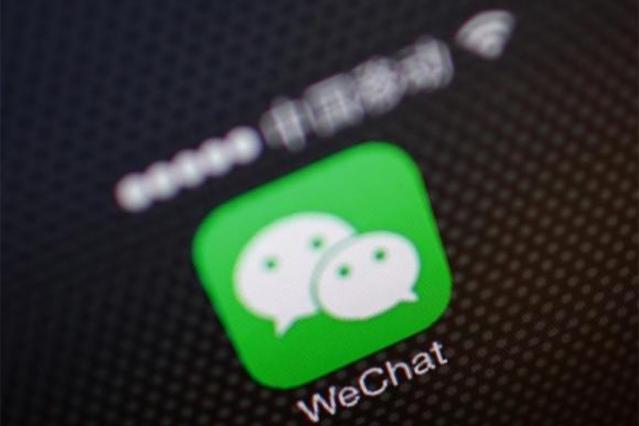

 |
A picture illustration shows a WeChat app icon in Beijing, December 5, 2013. [Photot/Agencies] |
Tencent Holdings Ltd is expanding its WeChat mobile payment system to stores in more than 20 countries to tap into the growing purchasing power of Chinese outbound tourists.
The social networking giant said on Thursday that foreign stores can apply to be part of its WeChat payment ecosystem as long as they have a trading license and a website or an application.
The move will enable Chinese outbound travelers to pay bills by scanning the quick-response codes on WeChat, which will partner with banks to automatically convert renminbi payments into a specific type of currency that foreign stores can accept.
Currently, the payment system supports transactions in nine currencies, including the euro, dollar, pound and yen. Dozens of companies such as RoyalPay Treadwell Partner Pty. Ltd, an Australian payment platform, are partnering with Tencent to offer the service in more than 20 countries and regions in Southeast Asia, Europe, North America and Australia.
WeChat is the most popular messaging app in China. It has 650 million regular users and 60 percent of them are using its payment tool.
Last year, visitors from the Chinese mainland spent about $165 billion on international tourism, accounting for more than 10 percent of the global consumption abroad, according to the Ministry of Commerce.
Alibaba Group Holding Ltd, a major rival of Tencent, is also expanding the international presence of its mobile payment tool Alipay. The e-commerce giant is offering similar services at more than 30,000 stores in South Korea, Singapore and Hong Kong, and plans to expand the figure to 1 million within the next five years.
Hao Zhujing, an analyst at the Beijing-based Internet consultancy Analysys International, said the intensified push by Internet companies will pit them against China UnionPay, the country's largest bank card processing provider.
"Mobile payment services are more popular in China than in other countries. Thanks to the popularity of online-to-offline catering and movie ticketing, a large number of Chinese consumers are getting used to making payments via smartphones," Hao said.
"This will give Alibaba and Tencent an advantage in eating into the overseas market share of UnionPay," she said.
But Hao also warned that the attraction of mobile payment platforms will hinge upon their penetration rates.
By the end of last year, UnionPay had a presence in more than 150 countries, with more than 13 million stores accepting consumer payments through bank cards issued by the company.
Sandy Shen, research director at Internet consultancy Gartner Inc, agreed. "Though Alibaba and Tencent have been working with overseas retailers for some time, retail store usage is still low as there are no obvious benefits of using Alipay and WeChat while credit cards can often give discounts."
© China Daily Information Co